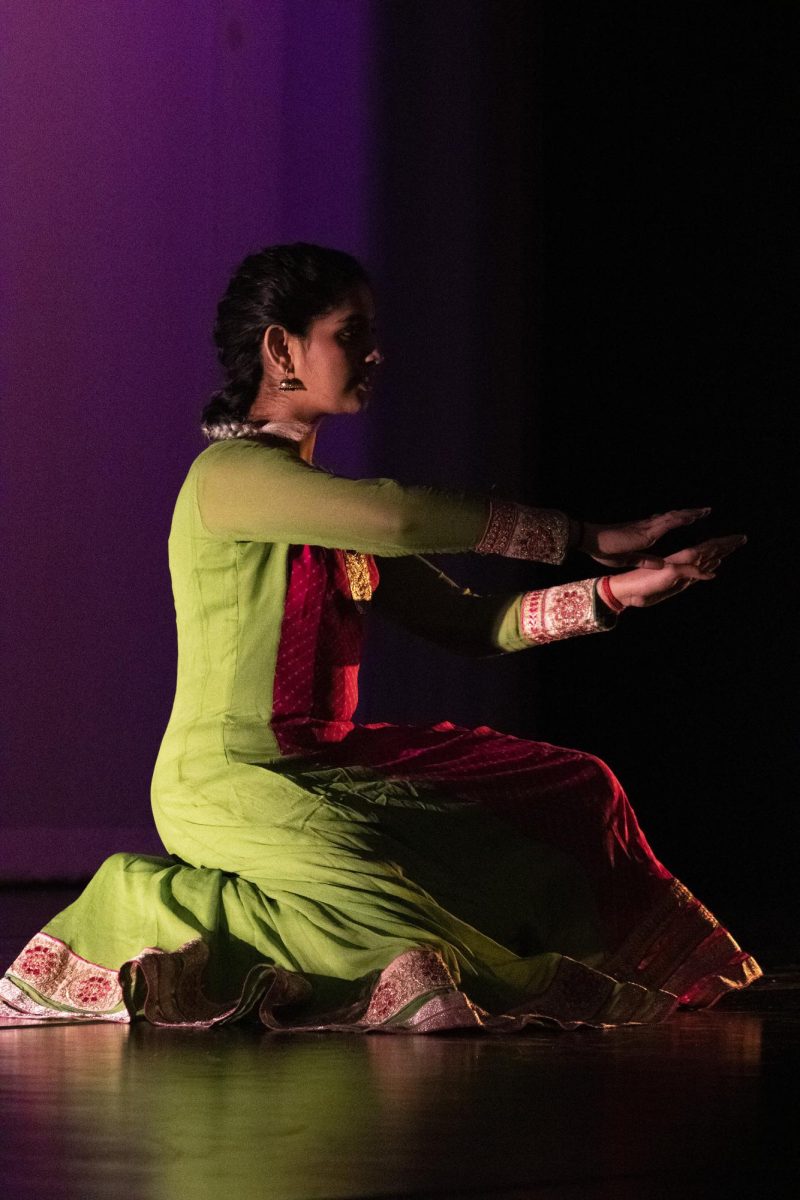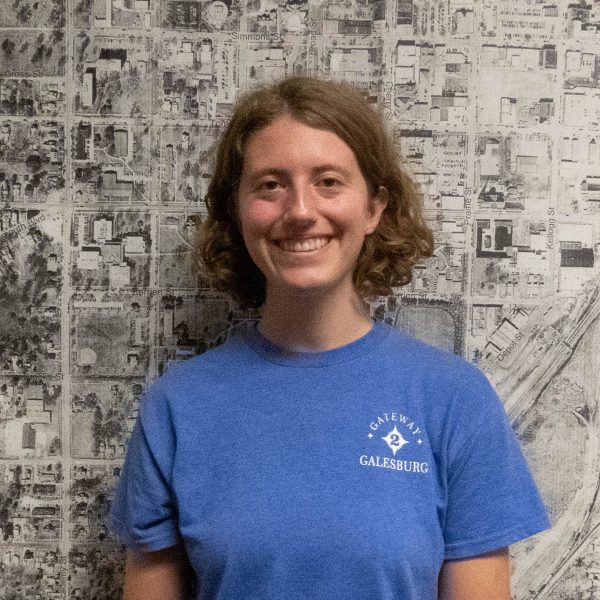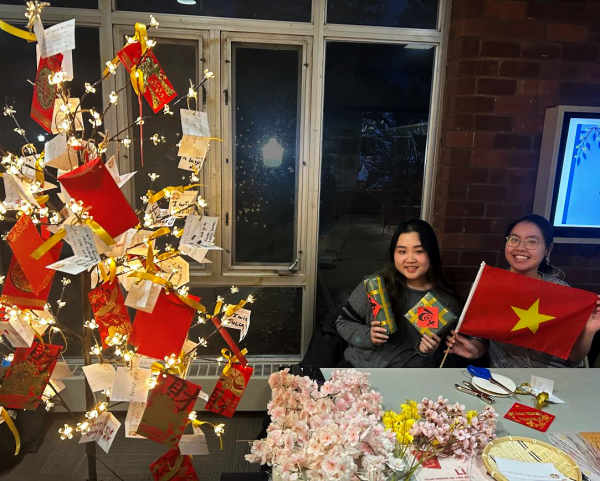
Lunar New Year is one of the most important holidays in many Asian countries and communities, a time of celebrating with loved ones, traditional meals, well-wishes and spiritual practices to bring prosperity and luck for the year ahead.
Lunar New Year marks the first day of the year in the lunisolar calendar, beginning The Year of the Dragon on Feb. 10. Many festivities last several days or weeks past the first day, as well.
While Lunar New Year is celebrated widely throughout many Asian countries, each culture has its own customs.
“Sometimes people call it as just Chinese Lunar New Year,” sophomore Daeun Kim said. “But as a Korean, it’s kind of a bit uncomfortable to listen to.”
Each country has their own unique traditions and celebrations for Lunar New Year, Kim said.
What are Knox students’ Lunar New Year traditions?
Many people celebrate with large groups of family and friends.
For Lunar New Year—called Tết in Vietnam—sophomore Nhi Hoang said that schools in Vietnam close for a long Tết holiday break so people can celebrate with their families and prepare in the days leading up to it. To prepare, many families buy new clothes and clean their home.
Senior Marina Hoang said that the first three days of Tết have a designated purpose: visiting your paternal relatives, then the maternal side, and then teachers and mentors. Her family also prepares an extra seat at the table with utensils for deceased family members, and they honor them by making shrines and praying to them.
Sophomore Duy Vo said in an email that his school in Singapore gave students a week-long break, so he used to visit his grandparents in Vietnam.
Kim, who grew up in Korea, fondly remembers spending time with family, as well. Her family plays a traditional Korean game called yunnori during the holiday.
A photo of her at about five years old with her family by the sea is still “one of my favorite pictures so far,” Kim said, “looking at the sea and having a good conversation with grandparents and playing with them.”
A common Lunar New Year custom is for kids to receive lucky money in a red envelope from elder relatives. The lucky money is given to children by older family members, along with wishes of “luck, wellness, happiness, joy, and loveable memories with everyone,” Marina said, adding that success, particularly for students, is another important wish.
Kim used to look forward to receiving lucky money after listening to her relatives give advice and well-wishes for the new year. She is past the age of receiving lucky money, “but as a grown up, food is what I love the most, of course, and also, playing [the] traditional game,” she said.
Memories of community and food also stick out to Marina, who remembers occasionally preparing a special dish called bánh chưng, which roughly translates to “sticky rice cake,” she said.
She said that the neighborhood came together to help her family make it. The cakes need to boil overnight, so people tend to the fire in shifts.
“It’s a lot of labor and love put into it, but…it is very memorable because it’s community building, and I think that’s the most important thing in Lunar New Year’s, celebrating it with other people,” Marina said.
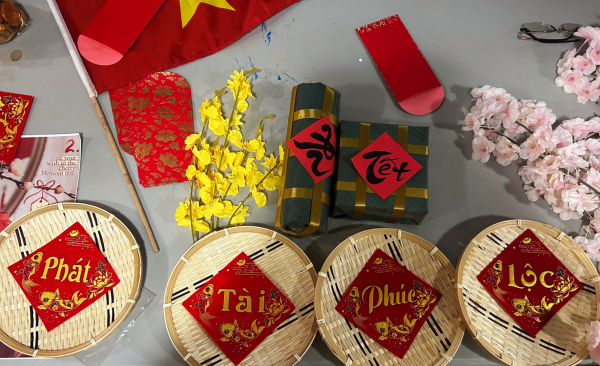
A popular Vietnamese tradition, especially in the north where Nhi is from, is to tune into an end-of-year TV broadcast.
“It’s kind of how Vietnamese reflect on all the things that happened throughout the year,” Nhi said. “So it’s a tradition that I grew up watching every single year [and] look forward to watching that.” She enjoys staying up late to watch it with her family.
“That usually is a comedy show, like a sarcastic SNL, but for a whole year,” Marina said. “It was really, really funny, but the cast has been changed over the years, so it’s lost its popularity. But apart from that show, there’s a weeklong special TV series that keeps running, like Lunar New Year music and celebratory stories and scenes.”
How are Knox students celebrating this year?
The Knox Vietnamese Club organized a tabling event through Feb. 23 where people could write wishes for the Knox community on paper and tie it to a tree. When you wrote a wish, you could take one from the tree and receive it in a red envelope, like the lucky money traditionally given to children.
The light-up tree Vietnamese Club used resembles the real trees people in Vietnam often place in their homes or on their porches, decorating them with gold ingots and calligraphy.
“The spiritual meaning of that is when the New Year’s Eve comes and the trees blossom, it resembles flourishing, [a] prosperous new year,” Marina said. “And opens up this amazing opportunity in the new year for everyone to achieve their goals, so people really take good care of the trees.”
The written well-wishes of the tabling event combines aspects of another Vietnamese tradition, where people write calligraphy when the clock strikes midnight on the new year to have a successful academic year.
“Intelligence and academic pursuits are really important in our culture,” Marina said. “Those are the ideas that we were trying to introduce and embody in the activities that we’re doing.”
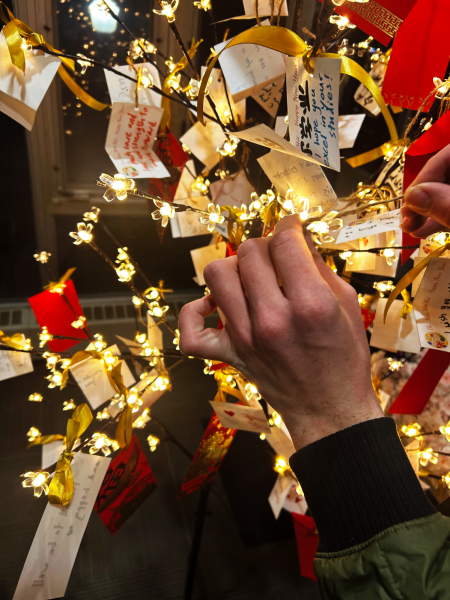
For Kim, getting to spend New Year’s Day with other Korean students and community members was a good way to connect through celebrations when she couldn’t be at home in Korea with her family. She said that career advisor Jiyou Galloway invited a group of Knox students and Galesburg community members to her home, where she prepared traditional Korean dishes.
“Having time with people in my country reminded me of my identity and made me feel more secure around people who share a lot of commonalities with me,” Kim said in an email. “As Lunar New Year is one of the biggest traditional days in Korea, I was so glad that I could celebrate it this year. As a Christian, I thank God for allowing me to have a good time with good people.”
Vo spent Lunar New Year with a large group of Vietnamese Knox students who gathered to eat a wide variety of traditional dishes they prepared.
“The most surprising part was just how many Vietnamese dishes there were,” Vo said in an email. “It was a very refreshing taste of home, and I’m still curious as to where they got all the ingredients to make them while being in Galesburg.”
There is a strong community of Knox students who celebrate Lunar New Year, but Marina feels that it’s still a small group.
“There’s potential to do more.” Marina said. “At least, we celebrated with our groups of friends, but I know that there are others that we weren’t able to reach out yet; or, frankly, there’s no resources to do so or no opportunity to do so. So far, we’ve been upholding one another in our own community, but it would be even better if there’s a joint effort to bring those nuances, to educate others, and to let others know that these are really important to us,”
That, she said, is one of her wishes for the new year.
“The academic calendar of Knox isn’t really accommodating to Lunar New Year,” Marina said. “I know that even for other international students who don’t celebrate Lunar New Year, and other holidays, like Diwali and others, I feel like there should be more effort. At least, accommodations in terms of resources and time.”
She said that some professors understood that she was not able to do much schoolwork that weekend, between celebrating Lunar New Year and coordinating calling family back home with the thirteen hour time difference. Others, though, were less understanding of the significance of the holiday.
“Given how our school has a large body of international students for the different conditions that it is right now, at least in Galesburg, I feel like there should be something more, and I hope there will be something more,” Marina said.





